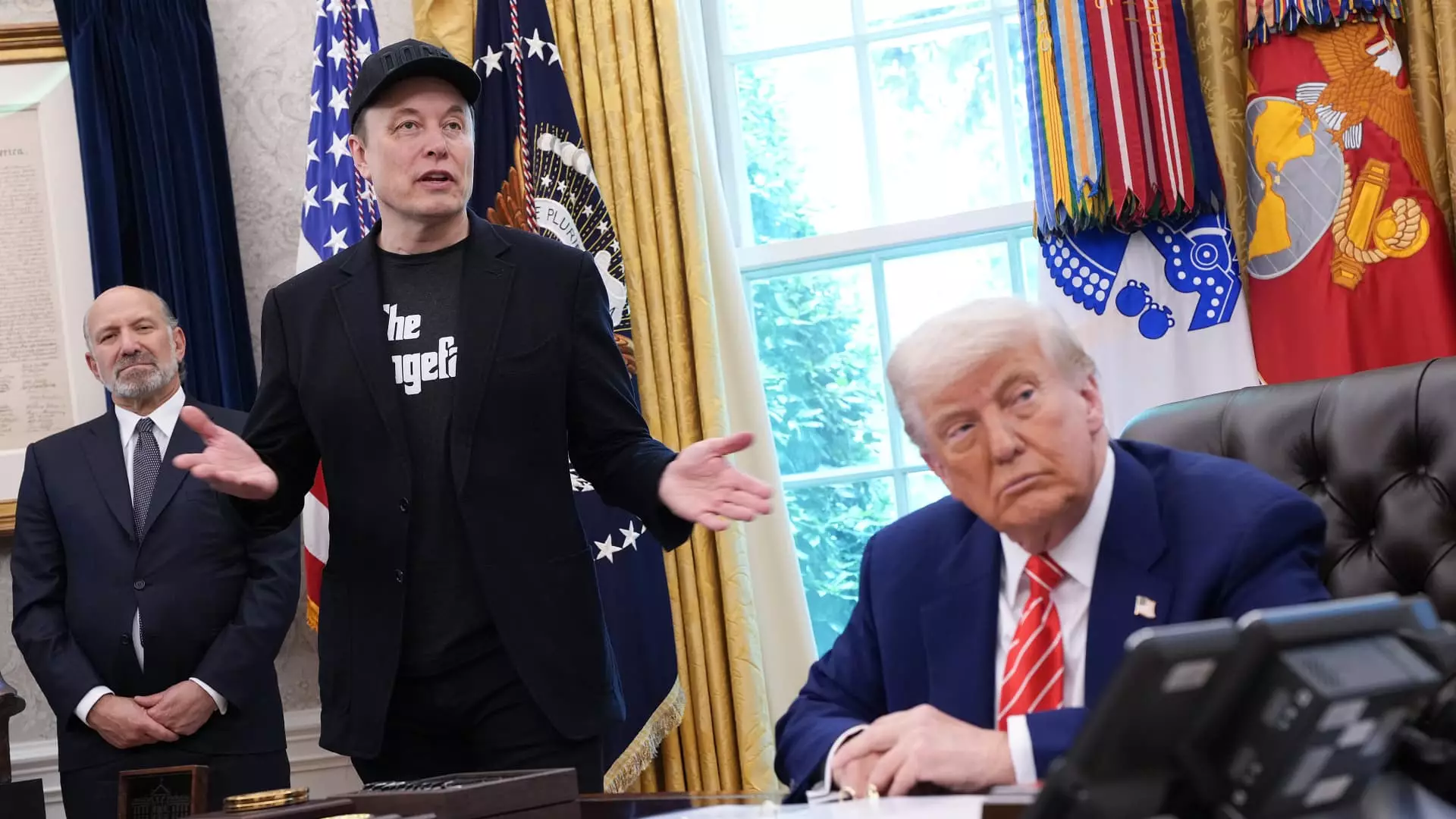The political world is a theater of unexpected alliances and fierce rivalries, and none are more dramatic than the tumultuous relationship between Donald Trump and Elon Musk. What began as a friendship built on mutual admiration and pragmatic benefit has, in the current climate, devolved into a public feud laden with barbs and discontent. The latest developments, where Trump openly rebuffed any intent to mend ties with Musk, while simultaneously acknowledging the value of the Starlink service, highlight the dichotomy between personal affiliations and political alliances in today’s polarized society.
Trump’s statement about keeping Starlink operational while contemplating the fate of his Tesla speaks volumes about his priorities. Here, we observe a sociopolitical dance where technology, politics, and ego intertwine. Starlink represents a piece of advanced technology crucial for connecting citizens, especially in underprivileged regions, while the Tesla—a luxury electric vehicle—stands as a status symbol. The president’s choice reflects a tendency often seen in political discourse: to leverage important services for cachet, without the burden of personal loyalty.
The Fragility of Alliances
In a broader context, this rift exemplifies the precarious nature of alliances in the political arena. Trump’s initial alignment with Musk seemed a formidable pairing—one that could thrive on the confluence of technology and conservative governance. However, Musk’s recent criticisms of Trump’s tax policies signal a schism not just between individuals but also amongst their respective factions. It begs the question: can a business titan align with a political leader when their ideals begin to clash? The answer is often dictated by the winds of public opinion and the shifting landscape of social media.
The backlash Musk received from his comments illustrates the dangers of crossing paths with Trump, whose supporters remain fiercely loyal yet equally susceptible to emotional reactions when their leader is called out. Musk’s attempt to reposition himself within this political drama, including the retraction of some critical social media posts, indicates a recognition of the need for self-preservation within the realm of influence. His strategic retreat also exposes how fragile the bonds of political kinship can be—fractures are recognized rapidly, and damage control becomes the priority.
The Implications of Disruption
The interplay between Trump and Musk extends beyond personal grievances; it reflects an essential reality of how technology and politics interact in the 21st century. Musk’s innovations in electric vehicles and space travel are the fabric of contemporary discussions about sustainability and the future of humanity. Trump’s ongoing influence, despite evident fractures in relationships, raises a fundamental concern about how political leaders can leverage tech advancements for ideological gains.
Moreover, the “big, beautiful” tax bill that was dinged by Musk’s critique highlights the precariousness of Republican unity when economic policy faces ideological scrutiny. This dilemma reveals the cracks within the party, caught between traditional conservatism and the emerging voice of billionaire innovators who challenge the status quo. The ultimate test may lie in whether these rivalries can ultimately evolve into productive dialogues that benefit the broader populace—factoring in that true progress is rarely born from bitterness or animosity.
As the story unfolds, the nuances of client-patron relationships in political contexts remain crucial. Will Trump’s sabre-rattling with Musk yield any long-term consequences, or will the allure of progress through innovation draw them back together? Only time will tell, but the undertones of this chaos may shape the future of political alliances in ways many fail to predict.


Leave a Reply